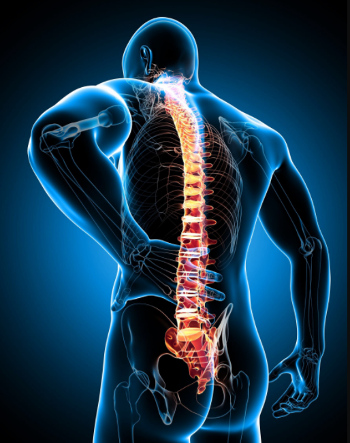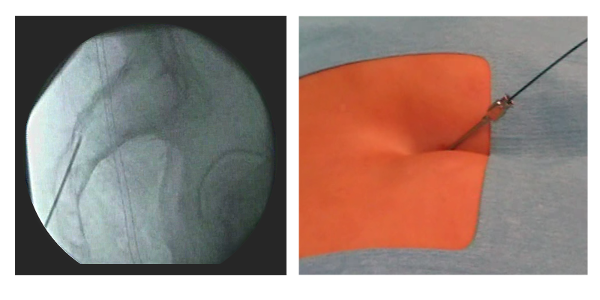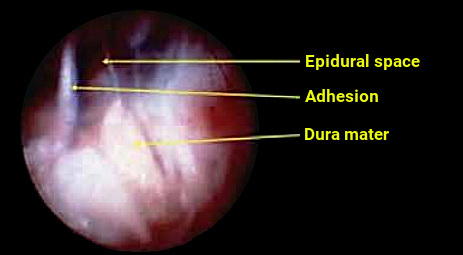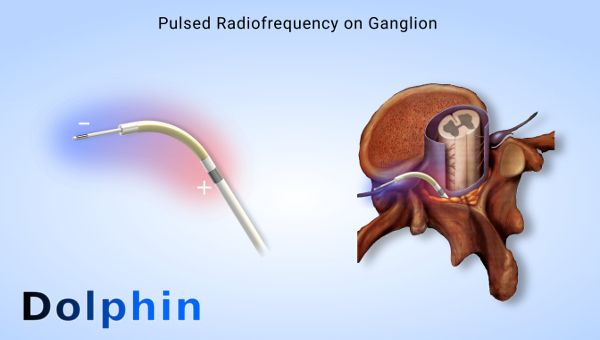
Indications
Indications for the spinal endoscopy procedure are mainly of a diagnosis and treatment of chronic lumbar pain with or without radicular irradiation at the lower limbs. The most frequent clinical indication is in post-surgical pain syndromes (FBSS), spinal canal stenosis, and mild spondylolisthesis, obviously, after such cases have not responded to pharmacological, rehabilitative or infiltrative treatments with less invasiveness and where there are no further surgical indications.
- FBSS Syndromes
- Spinal Radiculopathies
- Epidural stenosis
- Spinal stimulation Trials
DOLPHIN can also be used as a tool for performing Pulsed Radiofrequency treatments in the dorsal root ganglion, often involved in the inflammatory process.

The procedure
A small local anesthetic is performed at the level of the hiatus sacralis, then insert the metal introducer through which, under radioscopy, the Seldinger kit included in the kit inserted and move forward into the sacral canal.

Then, the introducer is removed by leaving the spindle in place and on this is introduced a dilator (Seldinger technique) through which the working cannula is positioned and allows the insertion of the Dolphin epiduroscope. The device is directional through an handpiece that allows the tip to flex and has two lumens of which one (OPTIC) is used by the flexible optical fiber and the other one (TOOL) is used for the infusion/suction of fluid, for washing the epidural space to improve visibility during the procedure, as well as for using of operating tools. The rise of the device in the epidural canal is controlled either by direct vision through the optical fiber and by radioscopy. Through the high-resolution optics, you can see the nerve roots, the dura mater and in some conditions also the back of the intervertebral discs.


The TOOL lumen allows using pincers, Fogarty balloon catheters, or the DP-Cath electrode to perform the Bipolar Pulsed Radiofrequency, so you can treat the pathology identified by endoscopy exam.

Further, selectively drugs can be administered at the level of inflamed roots for therapeutic and diagnostic purposes. The procedure normally takes 60-90 minutes and can display the epidural structures within the vertebral canal up to higher lumbar levels (L1 / L2) as well as all sacral levels.



